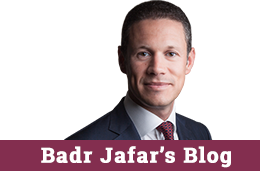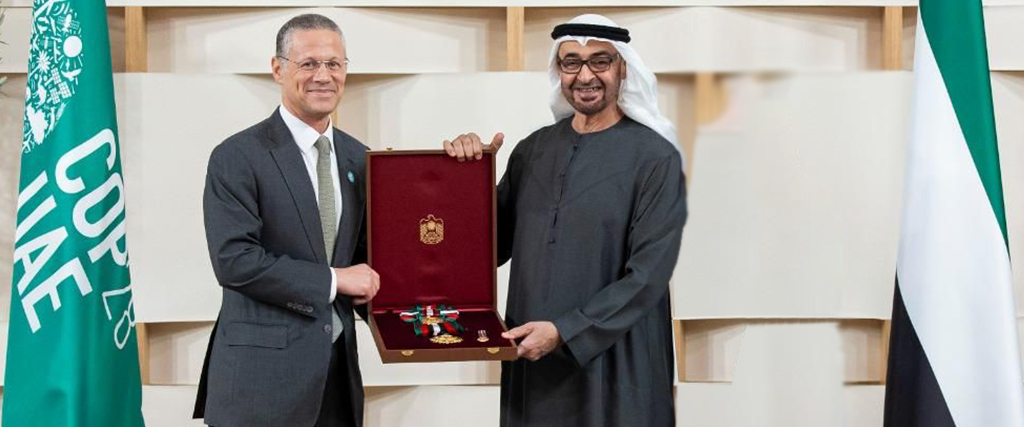Infrastructure development critical to global growth
The United Nations projects the world’s population will increase by a third to 9.5 billion people by 2050, which also means there will be a need for many more jobs. However, the International Labour Organization estimates that by 2018 the total number of unemployed globally is expected to increase by an additional 20 million to 220 million people.
For the first time in human history more people live in cities than anywhere else, which is where a vast majority of the expected population growth will occur. The World Economic Forum estimates that about three-quarters of all infrastructure investment will need to be made in cities over the next 40 years to meet the challenges of this megatrend. In the Gulf Region, a rapidly growing population coupled with a need to diversify economies away from oil, is helping to spur $1.085 trillion worth of infrastructure projects that are currently in the design, bid or construction stage to 2037.
The international trade task will also make increasing demands on investment. By 2030, according to the Organisation for Economic Cooperation and Development, port container and air freight traffic is projected to more than triple, while air passenger demand will double. The Emirate of Dubai alone is investing $7.8bn in expanding its airspace and airport capacity at Dubai International Airport as it looks to welcome 90 million passengers a year by 2018.
These extraordinary demands add up to a need for $60-70 trillion of infrastructure investment by 2030, along with a projected gap of $15-$25 trillion. Failing to close this gap will mean forfeited jobs, growth, and standards of living, creating a state where business as usual is not a viable option – we must collectively do everything possible to increase these levels of infrastructure investment.
In its analysis and consultations with stakeholders across four continents, the B20 Infrastructure and Investment Taskforce found that the largest roadblock by far to increasing private infrastructure investment was the small number of properly assessed investment-ready projects.
To address this issue, the Taskforce has formally recommended that as the first priority G20 countries should set infrastructure investment targets consisting of a prioritised list of projects rigorously assessed by an independent national infrastructure agency.
The Taskforce also found that an associated roadblock to increasing the number of investment-ready projects is the variable quality of practices used for analysing and selecting projects, the processes for regulatory approvals, as well as the procurement of design and construction. Average times for the regulatory approval of projects vary across the G20 countries from two years to as much as 10 years. We just do not have 10 years to play with. In France, for example, just 330,000 of the 500,000 new homes needed to meet demand in 2013 were built due to red tape holding back construction.
Consequently, the Taskforce has recommended that the G20 should establish a Global Infrastructure Hub to promote ongoing improvements through the sharing of leading practices and approaches, including improving the efficiency of regulatory approvals and standards for transparent procurement processes.
The Taskforce found that the major third roadblock to increased private infrastructure investment is the deficiency in appropriate financial instruments and capital markets. For instance, in Australia self-managed super funds represent $550 billion and growing, yet these funds cannot invest in non-listed infrastructure because of the lack of appropriate instruments. Similarly, many countries in the G20 cannot access locally denominated capital markets for infrastructure investment due to cumbersome global rules that make it hard for large pension funds and insurance companies to invest in major infrastructure projects.
Consequently, the Taskforce recommends that the G20 and the Private Sector should actively promote diversity in the range of infrastructure investment instruments, encourage the development of local infrastructure investment markets, and facilitate stronger cross-border investments to address declining FDI.
Implementing these suggestions would go a long way in securing additional investment for key infrastructure projects in, as well as from, the Gulf Region. A growing number of sovereign wealth funds, private equity funds and other financing vehicles from the region are looking at long term investment opportunities abroad. The Abu Dhabi Investment Authority, one of the world’s largest sovereign wealth funds, invested in two ports in New South Wales, Australia in 2013 through a consortium, and purchased Australia’s Queensland Motorways Ltd in April for US$6.6bn as part of a group of investors focused on infrastructure. Inward investment is also growing. US-based private equity firm Carlyle has bought stakes in six firms, mostly in Saudi Arabia and Turkey, since opening its Middle East office in 2007.
The Taskforce has calculated that together these recommendations, if implemented, have the potential to contribute 100 million jobs and $6 trillion of economic activity globally every year. This will go a long way towards securing the 2 per cent additional growth target agreed by G20 Finance Ministers in Sydney in February, increase quality of life and put people at the centre of economic growth. It will also put G20 countries in a better position to manage the megatrends that will shape the world over the next 40 years.
By David Thodey, Chief Executive Officer of Telstra Corporation Limited, and Badr Jafar, CEO of Crescent Enterprises – both members of the B20 Taskforce featured in The National on 5th April 2015.

 Tweets by @BadrJafar
Tweets by @BadrJafar




